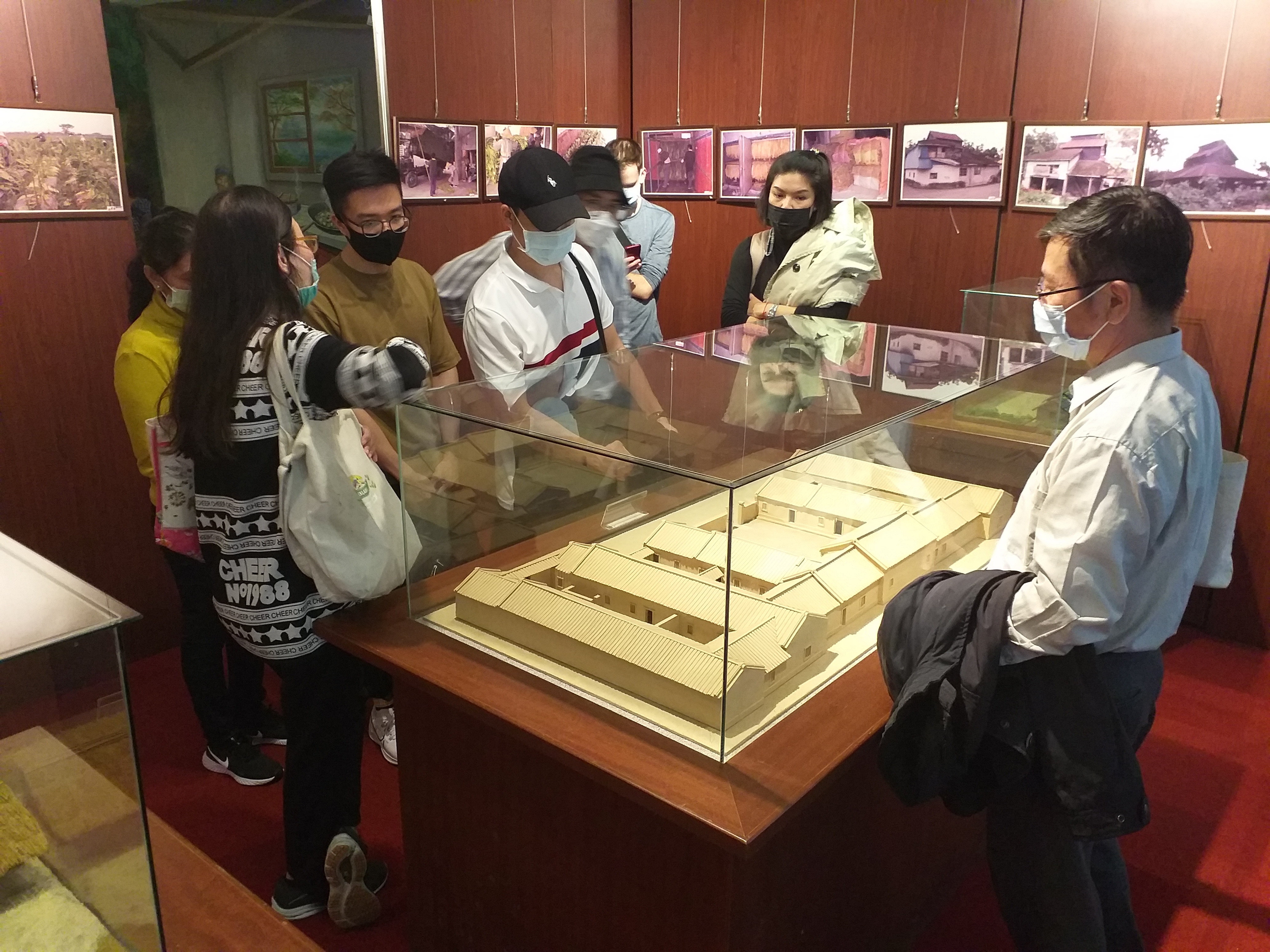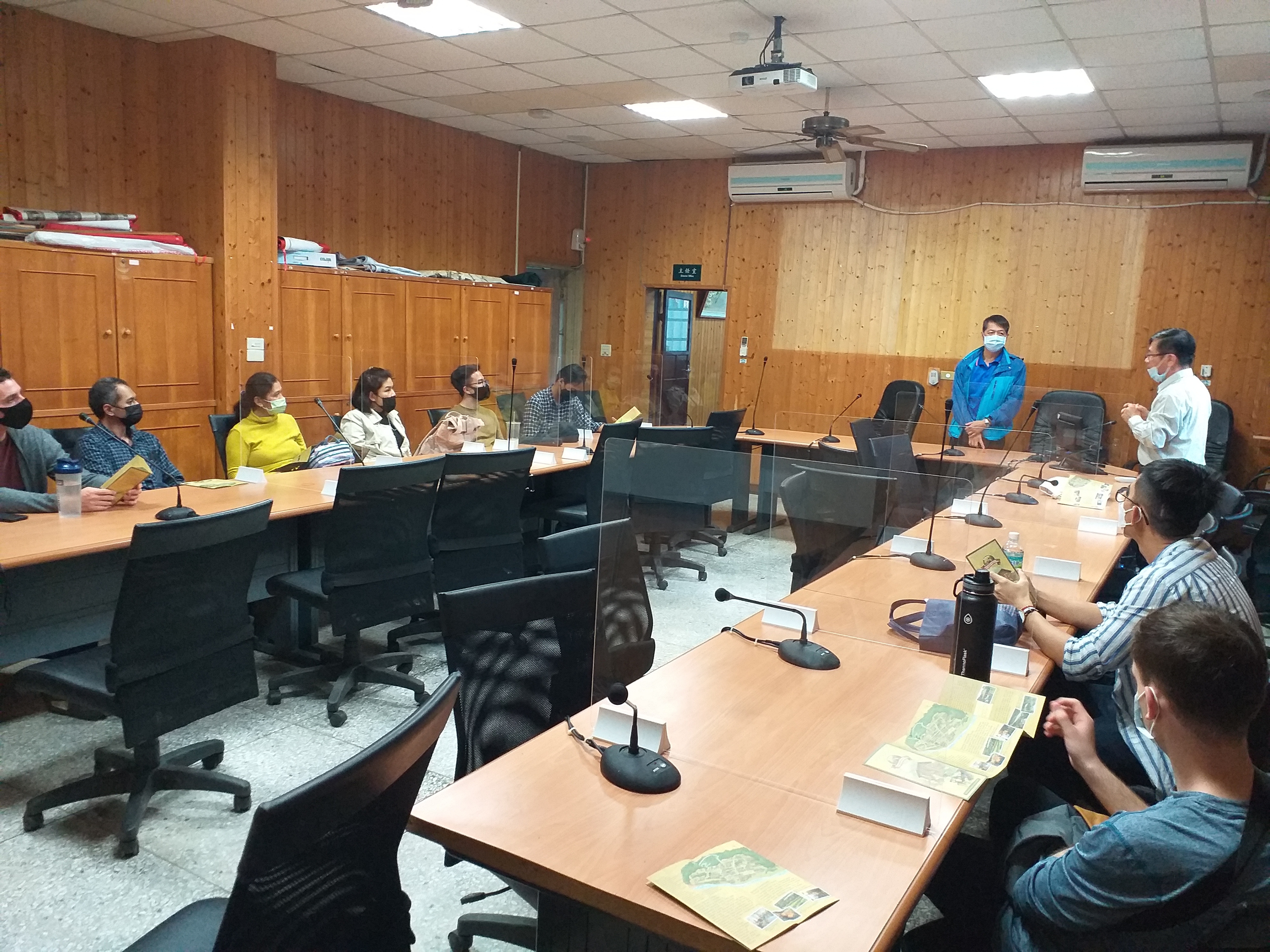2021 Field Trip to FengLin
Field trip to Fenglin – Hakka Township
|
Visit Fenglin Township (Hualian), tracing the stories of the Japanese colonial period (1895 -1945) |
The Ph.D. Program in Asia-Pacific Regional Studies – National Dong Hwa University, under supervision by the director, Professor Wang, Hurng-Jyuhn together with a total of 10 international students, from 5 different countries in the program had a field trip as a part of Research Methods of Social Science Studies to Fenglin Township, Hualien on November 30th, 2021. |
|
At The Fenglin Township Hakka Culture Museum, learning the traditional house structure, culture, history, and lifestyle of Hakka people |
They started activities by visiting the different locations in Fenglin township by guiding and introducing local cultures, customs, and history of the township. It was an eye-opening experience for them as the area was one of the most important landscapes during Japanese governance. Among the activities, when visiting 花手巾植物染工坊, the students learned how Hakka women pass their own traditions through batik painted products (花手巾). Also, the students got to visit the Hualien County Fengling Township Hakka Museum to discover the brief history, culture, and lifestyle of the Hakka people in Eastern Taiwan. |
|
Visit the office of The Lintianshan Forestry Culture Park |
At The Lintianshan Forestry Culture Park, learning historical stories of exploiting timbers under Japanese colonial rule |
| In the afternoon, the group headed to Lintienshan Forestry Culture Park where was used to be served as Lintienshan Management area log processing ground during the Japanese occupation. With a genuinely warm welcome from the officer of Wan-Rong ranger station, the international students had this opportunity to learn and observe how Japanese occupation history reflected through a local community and lifestyle. Through the activities, the international students had cultivated a unique experience that was somehow different from their home countries, what in addition to allowing them to communicate and have an interaction with locals for a better understanding in some part of the community structure and culture transformation in Eastern Taiwan through the real site visiting and observation. | |




